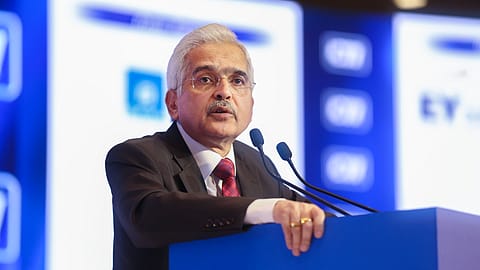No more 2-day wait for cheque clearing, RBI cuts timing to 'few hours'
Other initiatives announced by RBI include new lending apps repository, and higher transaction limit and "delegated payments" in UPI

The Reserve Bank of India, after two-day deliberations by its monetary policy committee (MPC), today announced key measures like reduction in timing of the clearing of cheques, a public repository of digital lending apps, increase in transaction limits for tax payments through UPI, and delegated payments via UPI.
The RBI says to improve efficiency in cheque clearing via the Cheque Truncation System (CTS) and reduce settlement risks, it has proposed to reduce the overall timing on the clearing cycle from up to two working days to a "few hours". "Cheques will be scanned, presented, and passed in a few hours during business hours. The clearing cycle will reduce from the present T+1 days to a few hours," the RBI says.
The central bank says it'll create a public repository of digital lending apps (DLAs) to protect customers' interests and address issues like data privacy, concerns about interest rates and mis-selling. It'll help customers verify the lending app's claims via the repository to be available on the RBI website. The move comes after reports of a continued presence of unscrupulous players in digital lending, who falsely claim association with RBI-approved regulated entities (REs). The RBI says the repository will be based on data submitted by the REs (without any intervention by RBI) to the repository. It will get updated as and when REs add new DLAs or delete an existing one.
In another measure, the RBI has increased the frequency of reporting credit information to credit information companies (CICs) from a monthly to a fortnightly basis, or any shorter intervals as agreed between the credit institutions (CI) and CIC. It'll ensure credit information reports provided by CICs reflect the latest information, says the central bank. "Borrowers will have the benefit of faster updation of information, especially when they have repaid loans. Lenders will be able to make better risk assessments of borrowers and also reduce risk of over-leveraging by borrowers."
In its guidelines about the payment systems, the RBI enhanced transaction limits for tax payments through UPI from ₹1 lakh to ₹5 lakh per transaction. "As direct and indirect tax payments are common, regular and high value, it has been decided to enhance the limit for tax payments through UPI from ₹1 lakh to ₹5 lakh per transaction," the RBI says.
The central bank has also proposed "Delegated Payments" in UPI, allowing an individual, a primary user, to set a UPI transaction limit for another individual, a secondary user, on the primary user’s bank account. The product is expected to add to the reach and usage of digital payments. The NPCI's UPI has a user base of 424 million individuals in India.